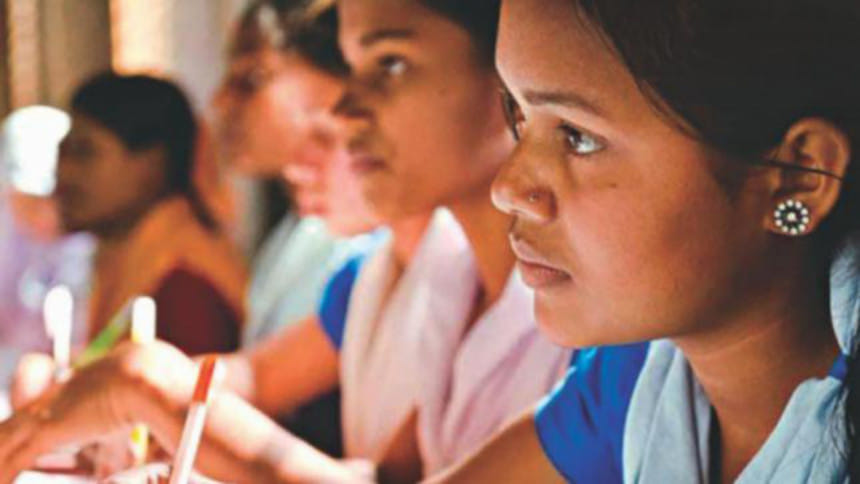Capturing the demographic dividend while tackling climate change

Bangladesh, quite rightly, has aspirations to meet the global Sustainable Development Goals (SDGs) as well as the Climate Change goals by 2030, and then to graduate into being a middle income country by 2041. It is commonly acknowledged that the key to achieving both these goals lies in educating and empowering the young girls and boys who will become the leaders of our country over the coming two decades. This is referred to as capturing the demographic dividend of our country.
However, we need to seriously think about how this can be achieved in the context of our development pathway while also tackling climate change at the same time. The role of girls in particular is an important one to consider.
It can be argued that educating girls over the last few decades has already given Bangladesh a major dividend in terms of fewer babies being born than would have been the case if girls had not been educated. It is interesting to compare the respective populations of Pakistan and Bangladesh at the time of independence, when we had the larger population of around 75 million, to the current populations of the two countries, with Bangladesh having just over 160 million people while Pakistan has over 200 million.
While there are many factors that have contributed to the lowering of the birth rate in Bangladesh compared to Pakistan, educating girls, as well as the boys who would go on to become the partners of these girls in their households, about family planning played an important role.
The second major economic, as well as social, contribution that educating and empowering girls has is to enable them to enter the workforce, particularly in the readymade garment industry, where they have been a very significant economic factor not only in the development of their own families but of the country as a whole. This is not to deny the positive impacts of educating boys, but to acknowledge that educating and empowering a girl can lead to even greater social and societal benefits.
Looking to the future, the investment in educating as well as empowering girls and boys must not only be continued but improved significantly if we are to capture the new demographic dividend that they offer us. The next generation must not only be enabled to become job holders or do manual labour only, they have to become problem solvers and entrepreneurs. This will require a significant change in the quality of education, starting with tertiary education in all our public as well as private universities. Unfortunately, the kind of education we are delivering now, with its emphasis on rote learning just to pass exams, is simply not fit for purpose. We need to make our university students into problem solvers and independent thinkers who will not just look for jobs after their graduation but become job creators instead.
This will not be easy but is absolutely achievable with the right kind of incentives and investment. In fact, it does not really require any more money, but rather requires that the money we do have is spent better going forward.
In the context of climate change impacts in Bangladesh, it is often observed that girls and women are particularly vulnerable to its adverse impacts. This is undoubtedly true and therefore, any programme to enhance adaptation and resilience should target women. However, there is also a significant opportunity to enhance the problem solving skills of girls and women so that rather than being victims of climate change, they become champions of tackling climate change problems.
This has emerged as the major new collective programme of investment across the university community, the development community and the government from the recently held 6th annual Gobeshona conference on Climate Change Research into Action. The idea is for all relevant stakeholders, both within government as well as outside it, to identify girls and women with the potential to become leaders, in whatever sphere they may be, and then invest in enhancing their leadership skills and abilities. Such a programme will not provide immediate changes but can do so over time in a manner that may indeed transform the country by 2041, if not by 2030.
Finally, it may be worth making this emphasis on improving the education of youth combined with a focus on girls a significant part of the 8th Five Year Plan of Bangladesh, which will soon be prepared by the Planning Commission along with many different sectors such as education, research, agriculture, industries, employment generation, and tackling climate change. Such a unifying theme of building the capacity of the youth of the country will enable us to capture the potential demographic dividend of our country going forward.
Saleemul Huq is Director of the International Centre for Climate Change and Development at the Independent University, Bangladesh.

 For all latest news, follow The Daily Star's Google News channel.
For all latest news, follow The Daily Star's Google News channel. 



Comments